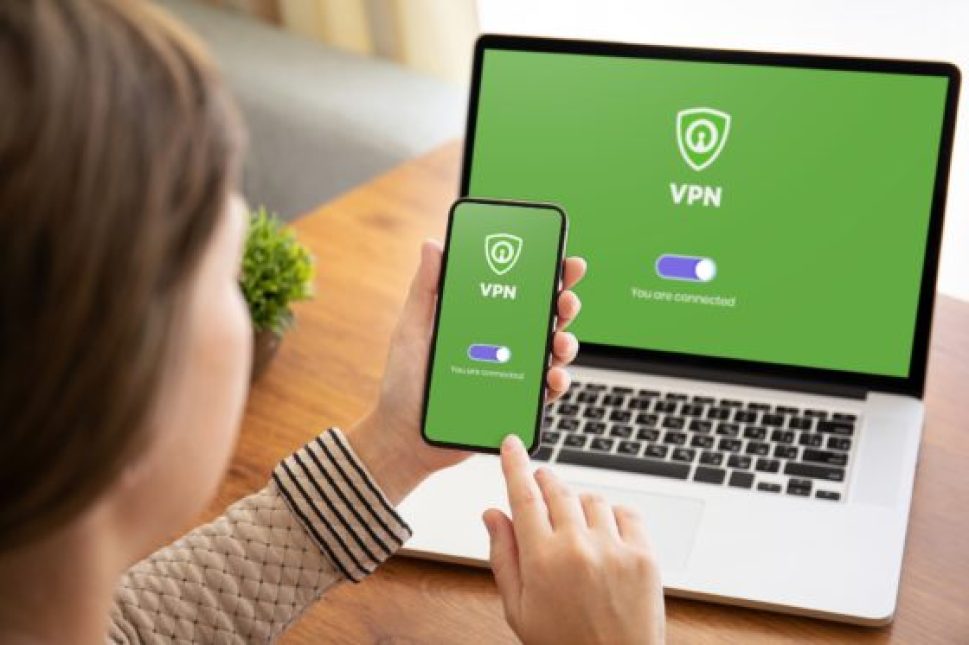The Coronavirus pandemic has affected millions across the world including the United States and many individuals are being forced to be laid off or be restricted to working from home to continue making income.
Working from home requires more stricter guidelines to meet common standards including HIPAA and PCI-DSS that need safeguards to protecting private and confidential customer-client data when accessed from an unrecognized network.
For accessing personally identifiable information (PII) and sensitive information from the Intranet and secure servers, major corporate entities requires the usage of a VPN along with other technical requirements to maintain productivity.
In this article, we’ll discuss how a VPN works to determining when and where a it can be used along with describing both the benefits and disadvantages of using a VPN.
What is a Virtual Private Network (VPN)?
Before going into how a VPN works, we have to describe the VPN meaning in general as it plays a role in networking.
A VPN or known as a Virtual Private Network establishes a secure network connection and one of many ways to protect any user’s local area network from unauthorized users from intercepting communications including what is seen in a “Man-in-the-Middle” attack.
The best part about a VPN is that it uses encryption providing needed privacy for data being transmitted over the wire.
How a VPN works…Network within a Network
Going into how the VPN properly works to add an additional layer of security, we’ll have to mix a little bit of technical jargon with the lament aspects to help a non-techy individual figure get the picture.
Essentially, a VPN would work by allowing a remote user’s Internet connection to being configured through a VPN software service like NordVPN instead of routing the networking traditionally through the average Internet Service Provider (ISP).
Before connecting to a VPN, security parameters would be setup and negotiated on both endpoints this being the security protocol to be used.
The most common security protocol used in today’s virtual private network is IPSec with IKE (Internet Key Exchange) protocol to authenticate the hosts then create a secure channel for both inbound and outbound connections…Explaining this can make anybody go cross-eyed, right!
Upon connecting to the VPN, an IP tunnel is created to provide encapsulation (tunneling) of all data as it travels from one computer host to another even-though the connection spans over an Internet infrastructure rather than a typical dedicated connection.
When a VPN can be Used?
Considering the facts that a VPN would be used when security is at its most vulnerable, a VPN is vital for data encryption in most cases when the average user is on an open source and public network that requires no password or does use a password that can be easily guessed.
A VPN should be used when using a network hosted by coffee shops, public library, hotels, restaurants, and other public service places that offer “Free Wi-Fi.”
To anybody working from home (especially during these Pandemic times today), remote sales representatives to individuals working in technical support would be required to use a Remote Access VPN to safeguard customer information, payment information, and account credentials.
In other security conscious and smarter ways, some people know that they are possibly being watched by anybody including the Internet Service Provider or third party applications that would track your browsing history to importing it as personal breadcrumbs to you…a VPN would make it harder to trace back-web history.
One tip…just don’t use a VPN maliciously that would violate service agreements (YouTube, especially) or break the law in general.
Pros and Cons of VPN
Balancing the benefits and disadvantages of using a VPN, the ultimate benefactor is the privacy to be achieved since a VPN would mask and hide the user’s identifier being the IP address from the computer when surfing the web to avoid being tracked…the same can be said about the location of the IP address which will also be hidden.
In addition to data privacy, a VPN would secure telecommunication data especially phone calls made via Voice-Over IP (VoIP) or through a phone software service to prevent any eavesdropping.
For remote workers, another benefit of using a virtual private network is the remote access capability of accessing data found on just about any website without restrictions to where data would could be accessed freely from the corporate servers and databases. Moreover, geo-location would be removed to accessing data originally restricted anyplace and anywhere.
Moving to disadvantages, a VPN can degrade network performance and throttle down the bandwidth of the network which can be a problem since some protocols used within the VPN are not optimized for maintaining fast speeds.
Since virtual private networks are only built as a software service, it is mainly compatible with Windows and Mac operating systems (as well as Linux server OS) as a plug-and-play software with little setup and configuration; but, other hardware like a Smart TV and even gaming consoles (I wouldn’t use a VPN while gaming online since it would affect performance anyways and probably would cause a ton of lagging/stuttering….) do not support VPN integration.



